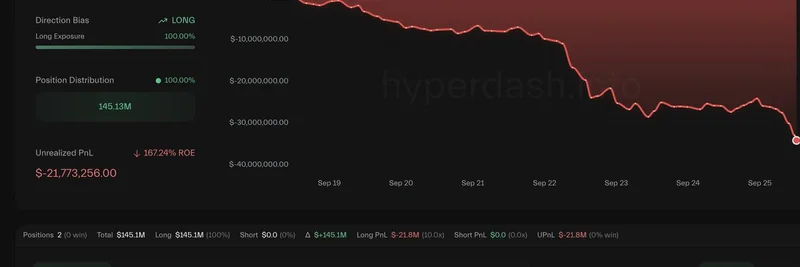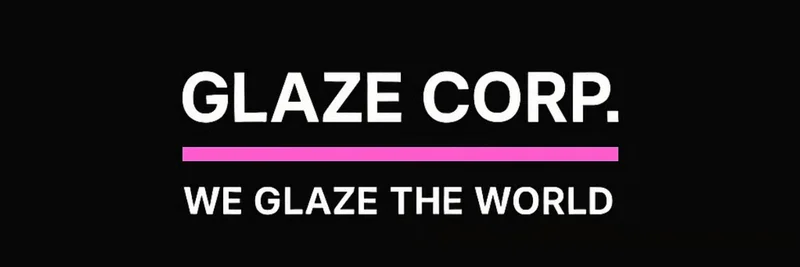In the fast-paced world of cryptocurrency trading, even seasoned whales can get caught in the undertow. That's exactly what happened to Machi Big Brother, a well-known crypto trader, whose long positions on Ethereum (ETH) and the meme-inspired token PUMP took a brutal hit amid a recent market downturn. According to on-chain data tracker Lookonchain, his unrealized losses have ballooned to over $21.77 million, prompting a hasty deposit of 4.72 million USDC into Hyperliquid to stave off liquidation.
Breaking Down the Trade
Machi Big Brother's positions, as revealed in the Hyperliquid dashboard, show heavy leverage at play. He's gone long on ETH with a position size of about 29,000 ETH, valued at roughly $120 million, but it's down significantly with an unrealized PnL (profit and loss) of -$19.3 million. Even more striking is his bet on PUMP, a 5x leveraged long position worth around $25 million, which has racked up -$2.4 million in losses so far.
For those new to the lingo, a "long position" means betting that the asset's price will go up. Leverage amplifies this by letting you control a larger position with less capital—think borrowing money to bet bigger. But if the market moves against you, losses pile up fast, and liquidation kicks in when your collateral can't cover the debt. Hyperliquid, a decentralized exchange specializing in perpetual futures (perps), is popular for such high-risk trades because it offers up to 50x leverage on various crypto assets.
To avoid getting wiped out, Machi deposited fresh USDC—stablecoin pegged to the U.S. dollar—into his account. This boosts his margin, giving him more buffer against further price drops. You can check the full trader dashboard here for real-time updates.
Who Is Machi Big Brother?
Machi Big Brother, whose real name is Jeffrey Huang, is no stranger to the crypto scene. He's a**********-American entrepreneur, musician, and influencer with a history in blockchain projects. Huang founded Mithril, a social media blockchain platform, and has been deeply involved in NFTs, often making headlines for big buys and sells. His trading style is aggressive, and he's earned a reputation as a "whale"—someone with massive holdings who can influence markets. But as this incident shows, even whales aren't immune to market whims.
The Role of PUMP in the Meme Token Ecosystem
PUMP ties directly into the wild world of meme tokens. It's associated with pump.fun, a Solana-based launchpad that lets anyone create and trade meme coins with minimal hassle. Think of it as a playground for viral, community-driven tokens that can skyrocket or crash overnight based on hype. PUMP itself serves as the platform's native token, fueling transactions and incentives on the site.
Meme tokens like those on pump.fun thrive on speculation and social media buzz, but they're notoriously volatile. Machi's long on PUMP highlights how even established players are diving into meme territory, betting on the next big pump. However, with the broader crypto market dipping—ETH itself down amid global economic jitters—this position turned sour fast.
Lessons from the Dip: Risks of Leveraged Meme Trading
This event is a stark reminder of the dangers lurking in leveraged trading, especially with meme assets. Volatility is the name of the game in crypto, and adding leverage is like pouring gasoline on a fire. One wrong move, and millions can evaporate. For blockchain practitioners and meme enthusiasts, it's crucial to understand risk management: set stop-losses, diversify, and never bet more than you can afford to lose.
Community reactions in the tweet's replies range from schadenfreude—"Karma is real"—to empathy, with some noting it makes their own smaller losses feel less painful. Others speculate on further dumps, underscoring how whale moves can ripple through the market.
As the crypto space evolves, stories like Machi's keep us grounded. Whether you're trading ETH majors or hunting the next meme gem, stay informed and trade smart. Keep an eye on platforms like Hyperliquid for those high-octane perps, but remember: the house—or in this case, the market—always has the edge in volatility.




